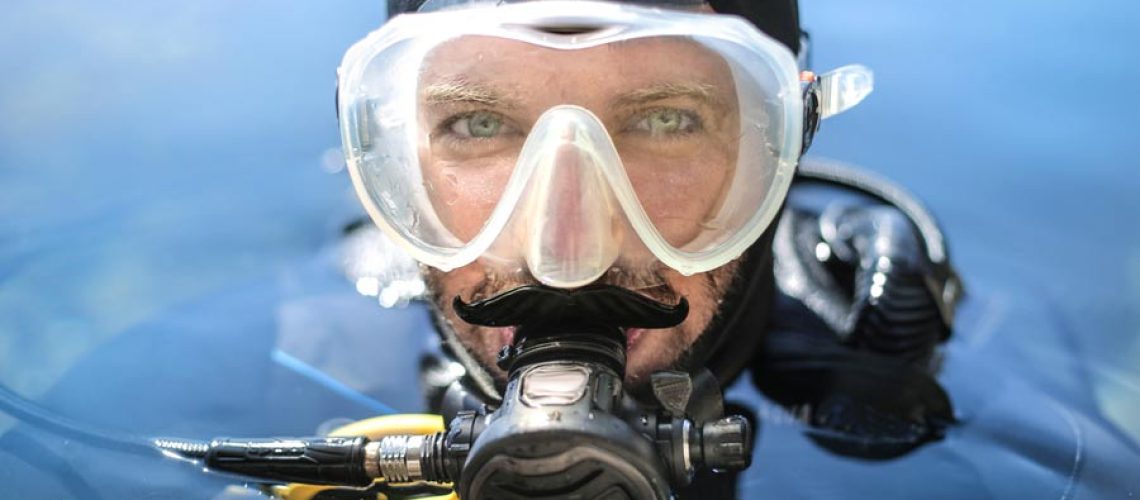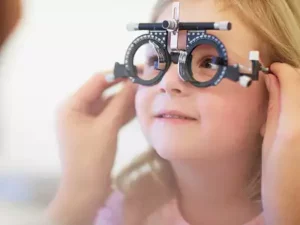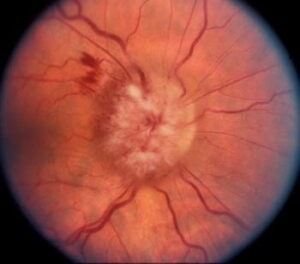If you are going scuba diving, there are several eye care tips that you should keep in mind to protect your eyes:
Wear appropriate eye protection: It is important to wear dive masks or goggles with UV protection to protect your eyes from the sun’s harmful rays.
Be aware of the pressure changes: Diving can put your eyes under pressure, and this can cause discomfort or even injury, it is important to equalize the pressure in your ears and sinuses regularly to prevent this from happening.
Be aware of the pressure changes that can occur while scuba diving. As you dive deeper underwater, the pressure around you increases, which can affect the air spaces in your body, including your ears, sinuses and eyes.
The most common issue related to pressure changes is the “barotrauma,” which occurs when the pressure inside the air spaces is not equalized with the surrounding pressure. Barotrauma of the ears and sinuses are quite common, but it can also affect the eyes.
When diving, the pressure in the eyes increases as you descend, this can cause discomfort and even injury to the eyes if the pressure is not equalized. The eyes have no natural way to equalize pressure, and that’s why it’s important to use specific techniques and equipment to equalize the pressure in the eyes such as pinching the nose and blowing gently or using a mask that allows you to exhale through the nose.
- Barotrauma of the eyes is usually a mild condition, but it can be uncomfortable, it can cause symptoms such as pain, redness, and temporary vision changes, sometimes it can cause more serious injuries such as retinal detachment, cataracts, or even blindness. That’s why it’s important to be aware of the pressure changes and to use the proper techniques and equipment to equalize the pressure in the eyes.
In summary, being aware of the pressure changes that occur while diving is essential to protect your eyes from barotrauma. It’s important to use the proper techniques and equipment to equalize the pressure in the eyes, and to be aware of the symptoms and seek medical attention if you experience any discomfort or vision changes.
Be aware of the risk of infection: The water in the ocean can contain bacteria and other microorganisms that can cause eye infections. It is important to avoid touching your eyes while diving and to clean your dive gear properly after each use.
Be aware of the risk of injury: Diving can increase the risk of eye injuries, such as scratches or cuts, it is important to be aware of the environment and take steps to protect your eyes, such as avoiding direct contact with coral or other sharp objects.
Be careful with the use of contact lenses: it is not recommended to use contact lenses while diving, as they can absorb water and cause discomfort or infection. If you must use them, be sure to wear dive-specific contact lenses or bring a spare pair of glasses to wear during the dive. Or use daily contact lenses.
Additionally, it’s important to keep in mind that contact lenses can absorb the chemicals present in the water, such as chlorine or salt, which can cause irritation and redness, and can also make the contact lenses more difficult to remove after the dive.
Furthermore, contact lenses can also become dislodged during a dive which can cause an eye injury, it’s important to be aware of this and take steps to prevent it from happening, such as ensuring that the contact lenses are properly inserted and fit well.
In summary, scuba diving can be a lot of fun, but it’s important to take the necessary precautions to protect your eyes from the unique risks that come with it. Wearing appropriate eye protection, being aware of pressure changes, risk of infection and injury, and taking care of your contact lenses or glasses, and having regular eye exams are important steps to keep your eyes healthy when diving.
It is important to have regular eye exams to detect and treat any potential eye problems that may be caused by diving before they become more serious.





